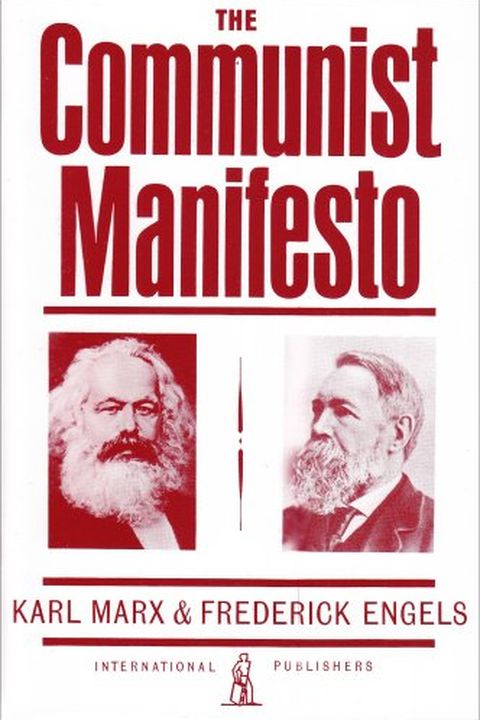Цитаты из книги The Communist Manifesto
The history of all hitherto existing society is the history of class struggles.
Freeman and slave, patrician and plebeian, lord and serf, guildmaster and journeyman, in a word, oppressor and oppressed, stood in constant opposition to one another, carried on an uninterrupted, now hidden, now open fight, that each time ended, either in the revolutionary reconstitution of society at large, or in the common ruin of the contending classes.
Let the ruling classes tremble at a Communistic revolution. The proletarians have nothing to lose but their chains. They have a world to win.
Workingmen of all countries unite!.
Modern bourgeois society with its relations of production, of exchange, and of property, a society that has conjured up such gigantic means of production and of exchange, is like the sorcerer, who is no longer able to control the powers of the nether world whom he has called up by his spells.
You are horrified at our intending to do away with private property. But in your existing society private property is already done away with for nine-tenths of the population; its existence for the few is solely due to its non-existence in the hands of those nine-tenths. You reproach us, therefore, with intending to do away with a form of property, the necessary condition for whose existence is the non-existence of any property for the immense majority of society.
In one word, you reproach us with intending to do away with your property. Precisely so: that is just what we intend.
Communism deprives no man of the power to appropriate the products of society: all that it does is to deprive him of the power to subjugate the labor of others by means of such appropriation.
It has been objected, that upon the abolition of private property all work will cease, and universal laziness will overtake us.
According to this, bourgeois society ought long ago to have gone to the dogs through sheer idleness; for those of its members who work, acquire nothing, and those who acquire anything, do not work.
Then the world will be for the common people, and the sounds of happiness will reach the deepest springs. Ah! Come! People of every land, how can you not be roused.
But modern bourgeois private property is the final and most complete expression of the system of producing and appropriating products, that is based on class antagonisms, on the exploitation of the many by the few.
It has drowned the most heavenly ecstasies of religious fervour, of chivalrous enthusiasm, of Philistine sentimentalism, in the icy water of egotistical calculation. It has resolved personal worth into exchange value, and in place of numberless indefeasible chartered freedoms, it has set up that single, unconscionable freedom -- free trade. In one word, for exploitation, veiled by religious and political illusions, it has substituted naked, shameless, direct, brutal exploitation.
Do you charge us with wanting to stop the exploitation of children by their parents? To this crime we plead guilty.
Political power, properly so called, is merely the organised power of one class for oppressing another.
All that is solid melts into air, all that is holy is profaned, and man is at last compelled to face with sober senses, his real conditions of life, and his relations with his kind.
These labourers, who must sell themselves piece-meal, are a commodity, like every other article of commerce, and are consequently exposed to all the vicissitudes of competition, to all the fluctuations of the market.
